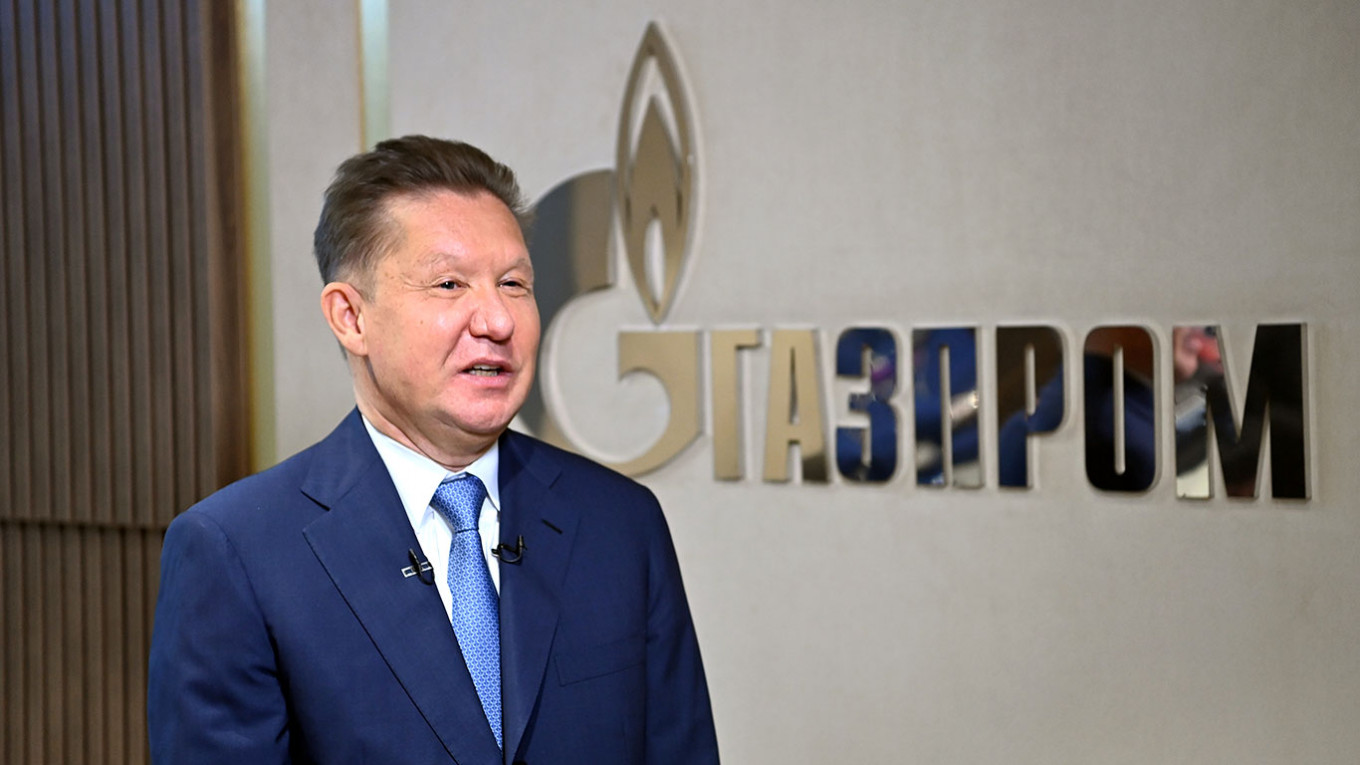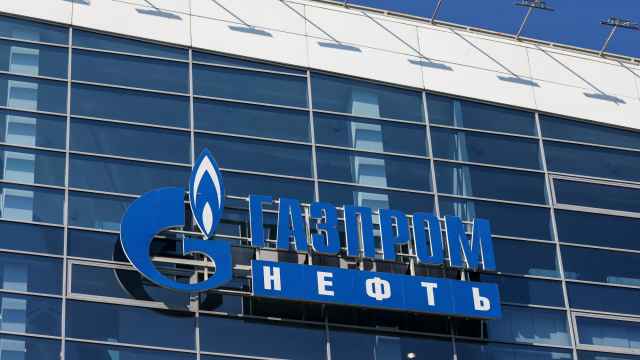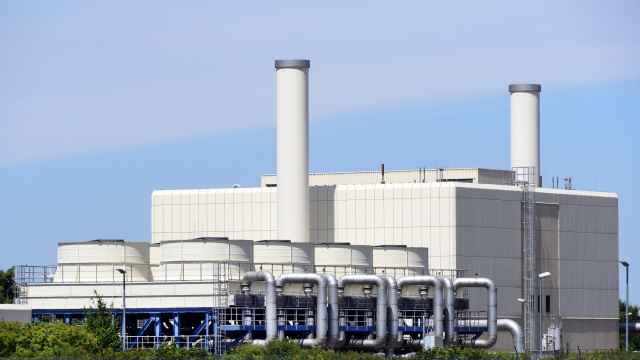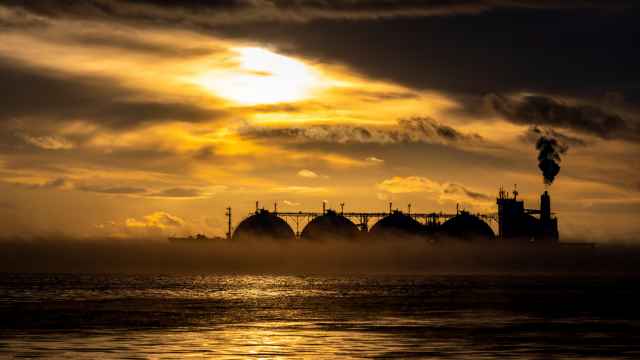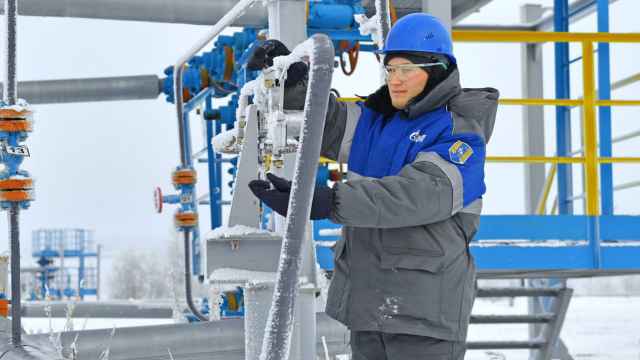Russia’s Gazprom and Hungary have signed a 15-year gas supply contract, triggering fury from Ukraine.
Budapest on Monday confirmed the deal, which will bring around 4.5 billion cubic meters of natural gas from Russia each year until 2036 through transit routes in Austria and Serbia via the new TurkStream pipeline which runs under the Black Sea — thus bypassing Ukraine and angering Kiev.
The Ukrainian foreign ministry said it viewed the deal as “nothing but a political, economically unfounded decision, which has been made to the benefit of the Kremlin and to the detriment of the national interests of Ukraine and Ukrainian-Hungarian relations.”
In response to the comments, Budapest summoned the Ukrainian ambassador Tuesday.
Ukraine makes around $3 billion a year through transiting Russian gas to Europe — a commercial relationship which has persisted despite the ongoing war between Russian-backed separatists in the Donbass and Russia’s annexation of Crimea in 2014.
But the completion of Nord Stream 2 — the $12 billion gas pipeline linking Russia to Germany under the Baltic Sea — has threatened Ukraine’s role as a transit provider. Kiev argues that Russia is seeking alternative transit routes as a way of putting pressure on Ukraine. Russia and Gazprom say the pipe will increase the stability of gas supplies between Russia and Europe.
The Kremlin has backed the deal and dismissed Ukraine's concerns. “This is a long-term contract that will guarantee predictable, timely supplies of natural gas to Hungary,” Kremlin spokesperson Dmitry Peskov told reporters Tuesday.
European gas crisis
The deal between Russia and Hungary — under negotiation long before current market conditions — comes as gas prices in Europe remain elevated following a surge over the summer. Benchmark prices passed $1,000 per 1,000 cubic meters for the first time in history Tuesday morning.
Storage levels in Gazprom’s facilities across the continent are at their lowest levels in years and politicians have accused the Russian gas exporter of “market manipulation” and trying to exploit Europe’s reliance on Russian energy, which supplies more than 40% of the bloc’s natural gas imports.
Russia says elevated gas prices demonstrate the importance of bringing Nord Stream 2 online as soon as possible and is pushing other European countries to follow Hungary’s lead and ink long-term gas supply contracts.
Analysts have downplayed the idea Gazprom could be trying to squeeze Europe.
“Gazprom is prioritizing available production capacity to refill its Russian storage facilities ahead of winter, following a historically large drawdown this past heating season,” said Ronald Smith, oil and gas analyst at BCS Markets. “I expect flows to Europe to pick up in early November as that task is completed.”
“If the company had the capacity to be refilling European storage while simultaneously refilling Russian storage, I expect the company would be doing so.”
“Probably Gazprom could have tried to boost supply to Europe a little more, but I doubt this would fundamentally change the picture as the gas shortage seems quite large — more than 12% of Gazprom’s annual exports, which is hard to deliver within just 1-2 months,” Ildar Davletshin, an analyst at Wood & Co, told The Moscow Times.
Natural gas, which is less polluting than other fossil fuel sources of power, is seen as a key part of Europe's plan for an energy transition that will see the 27-member bloc become net-zero by 2050. That puts Gazprom in a position of strength, many argue, despite the political blowback in recent weeks.
“Gas will play a crucial role in Europe's energy balance at least for the next few decades,” said Anna Kishmariya, an equity researcher at the Aton brokerage firm. “And Gazprom is fulfilling its contractual obligations for European partners and therefore remains a stable gas supplier to its European counterparties.”
“The question Europe should be asking is how they can make their energy industry more robust and competitive,” added Davletshin. “This could potentially mean less demand for Russian gas in the future if Europe develops more storage facilities for gas and buys cheap liquified natural gas (LNG) off-season, batteries to store renewable energy, maybe even more nuclear. But all this will take quite a bit of time.”
Gazprom’s shares have risen 20% over the last month following the completion of Nord Stream 2, which is awaiting certification by German regulators before it can be put into use, and the surge in gas prices.
But the fact Gazprom has raised gas supplies to Turkey and China above levels seen in 2019 while exports to western Europe are down has heightened suspicions of a geopolitical play.
“It's hard to remove politics out of gas supply questions,” said Davletshin. “Those European countries that view Russia as a source of threat, like Poland for example, will continue to look for alternatives.”
A Message from The Moscow Times:
Dear readers,
We are facing unprecedented challenges. Russia's Prosecutor General's Office has designated The Moscow Times as an "undesirable" organization, criminalizing our work and putting our staff at risk of prosecution. This follows our earlier unjust labeling as a "foreign agent."
These actions are direct attempts to silence independent journalism in Russia. The authorities claim our work "discredits the decisions of the Russian leadership." We see things differently: we strive to provide accurate, unbiased reporting on Russia.
We, the journalists of The Moscow Times, refuse to be silenced. But to continue our work, we need your help.
Your support, no matter how small, makes a world of difference. If you can, please support us monthly starting from just $2. It's quick to set up, and every contribution makes a significant impact.
By supporting The Moscow Times, you're defending open, independent journalism in the face of repression. Thank you for standing with us.
Remind me later.



